People were pretty much laborers in our neighborhood. There were occasional people who were teachers and some who were nurses... but that was about it, particularly for women of color.
Melody J. Stewart's story
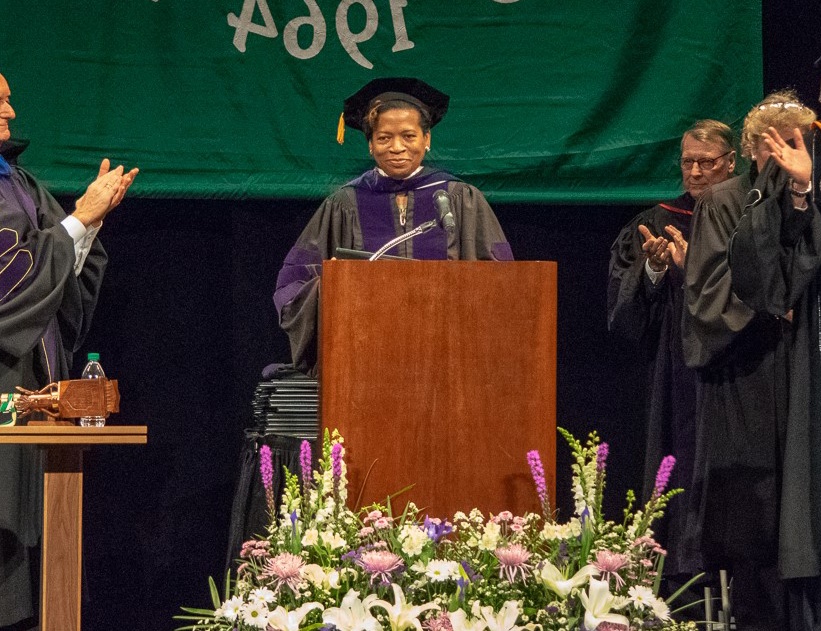 Born February 19, 1962 and raised in Cleveland, Melody Stewart made history as the first African American woman elected to the Supreme Court of Ohio. She is also the first African American woman elected to any statewide office in Ohio.
Born February 19, 1962 and raised in Cleveland, Melody Stewart made history as the first African American woman elected to the Supreme Court of Ohio. She is also the first African American woman elected to any statewide office in Ohio.
Stewart attended the all-girls Beaumont School, where the Dean of Girls recruited her to run for student council vice president. She ran instead for president and became Beaumont’s first African American elected to the position. “I don't know that I would have run for elected office,” Stewart reflects, “had that seed not been planted.” She studied at the College-Conservatory of the University of Cincinnati where she was the only person of color majoring in music theory. A classically trained pianist, Stewart earned her Bachelor of Music in 1984.
After college Stewart worked as a music teacher and administrator for a healthcare management company. One of the firm’s partners was attending law school and routinely set his law books down before entering his office. Stewart recalls perusing them and finding them interesting. She applied to the Cleveland-Marshall College of Law at Cleveland State University, continued to work while pursuing her law degree full-time, and graduated in 1988.
Stewart began her career as a civil defense litigator and assistant law director for the cities of Cleveland and East Cleveland. She then shifted to a career in legal education, teaching courses including criminal law, criminal procedure, legal research, and ethics and professional responsibility. Stewart has taught at the University of Toledo College of Law, Ursuline College, and Cleveland-Marshall College of Law. At Cleveland-Marshall Stewart has served as lecturer, assistant dean, and full-time member of the faculty. Stewart also served as the Director of Student Services at the School of Law at Case Western Reserve University.
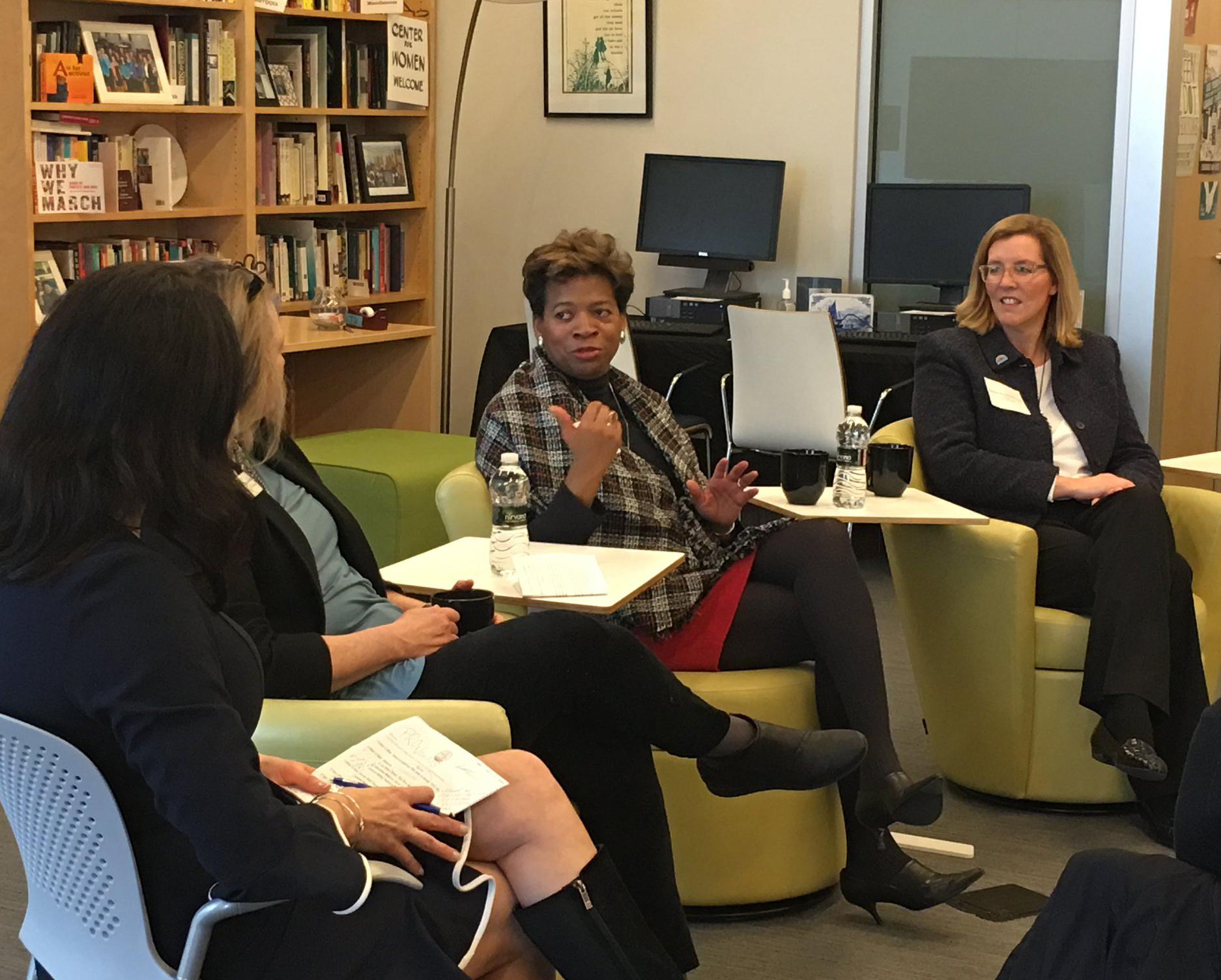
On the advice of a former teacher at Beaumont, Stewart ran for Eighth District Court of Appeals in 2000 and 2002 but lost twice in the Democratic primary. Undaunted, Stewart ran a third time in 2006 and won. She was reelected in both 2010 and 2016. While serving on the Eighth District Court of Appeals, Stewart served as Administrative Judge and earned her Ph.D. from Case Western Reserve University’s Mandel School of Applied Social Studies.
In 2018, Stewart crisscrossed the state to run for Ohio Supreme Court. She made history on November 6, 2018 as the first African American woman elected to the Supreme Court of Ohio.
Stewart has served on the Ohio Criminal Justice Recodification Committee and the Board of Trustees of the Judicial College. She has also chaired both the Ohio Capital Case Attorney Fee Council and Euclid’s Planning and Zoning Board.
In 2017 Stewart became an inaugural member of the Cleveland-Marshall Hall of Fame. She has also won the Nettie Cronise Lutes Award from the Women in the Profession Section of the Ohio State Bar Association and the St. Thomas More Award from the Lawyers Guild of the Catholic Diocese of Cleveland. In 2018 Stewart received an Honorary Doctor of Laws degree from Cleveland State University.
The Team Behind Trailblazing Women in Ohio Politics
Trailblazing Women in Ohio Politics is a collaboration between WBGU-PBS and Dr. Melissa K. Miller, Professor of Political Science at Bowling Green State University. Narrative profile compiled and written by Rachel Durbin and Melissa K. Miller.
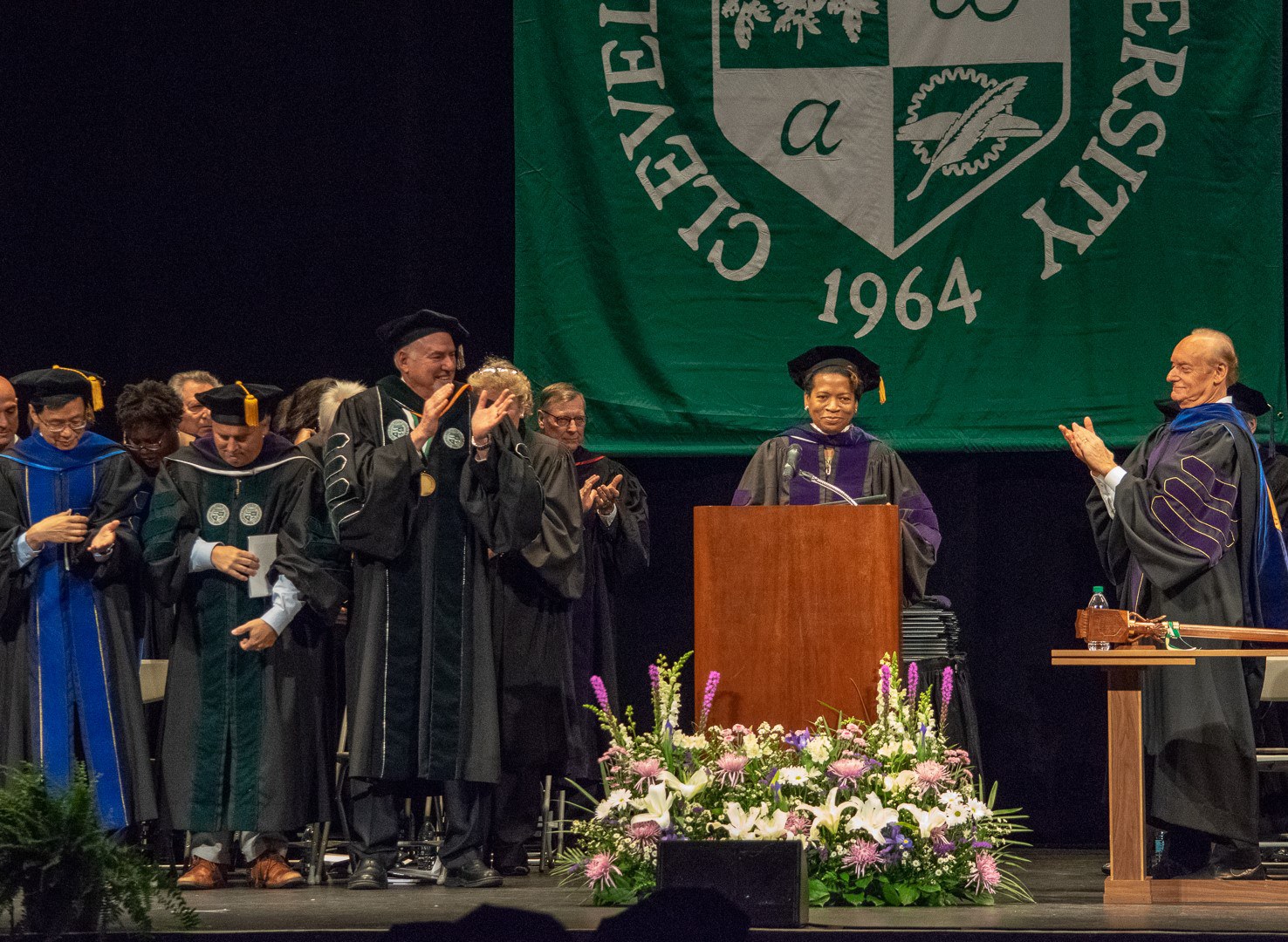
Sound Bites
Not in the realm of possibility
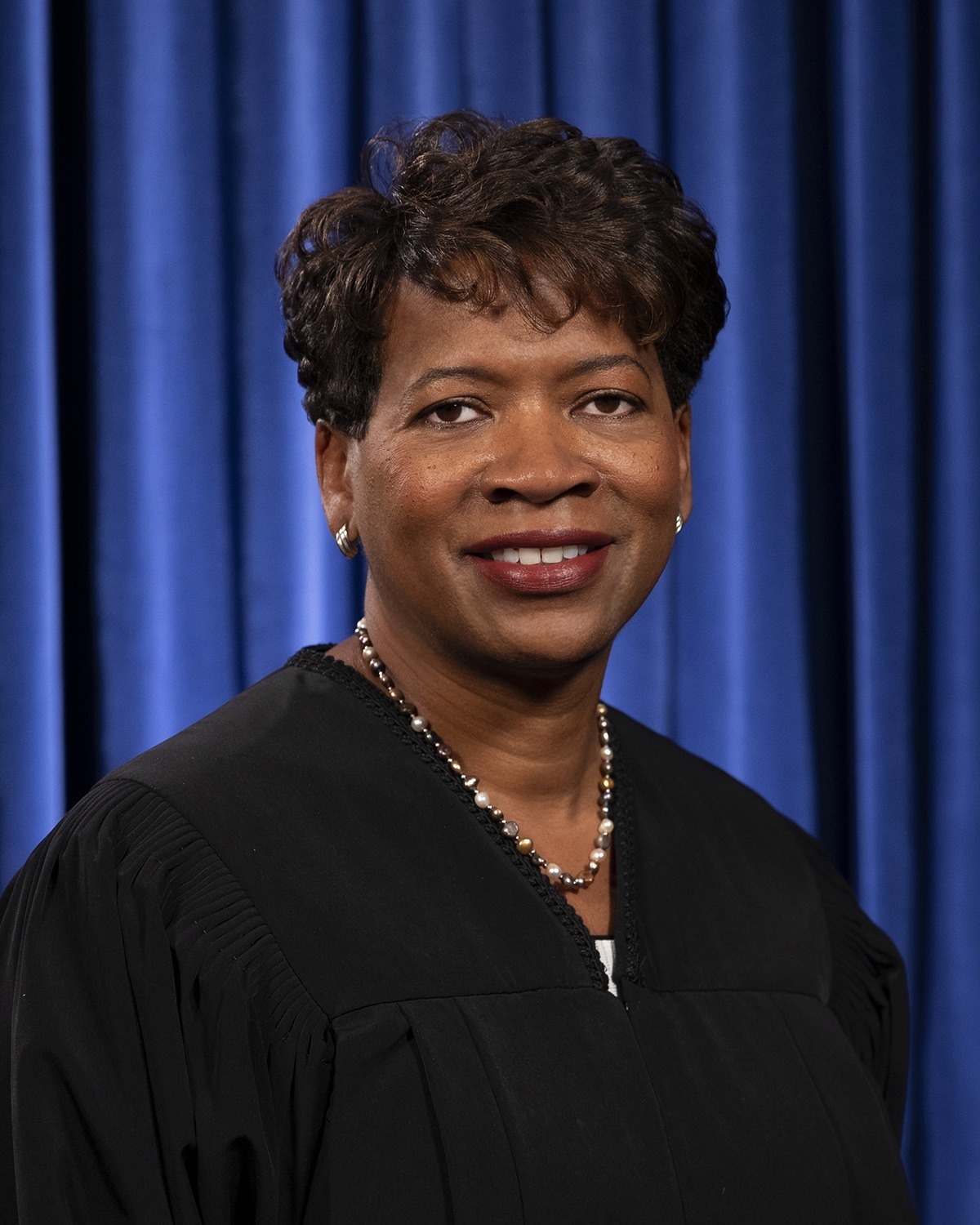
Loss, loss, win
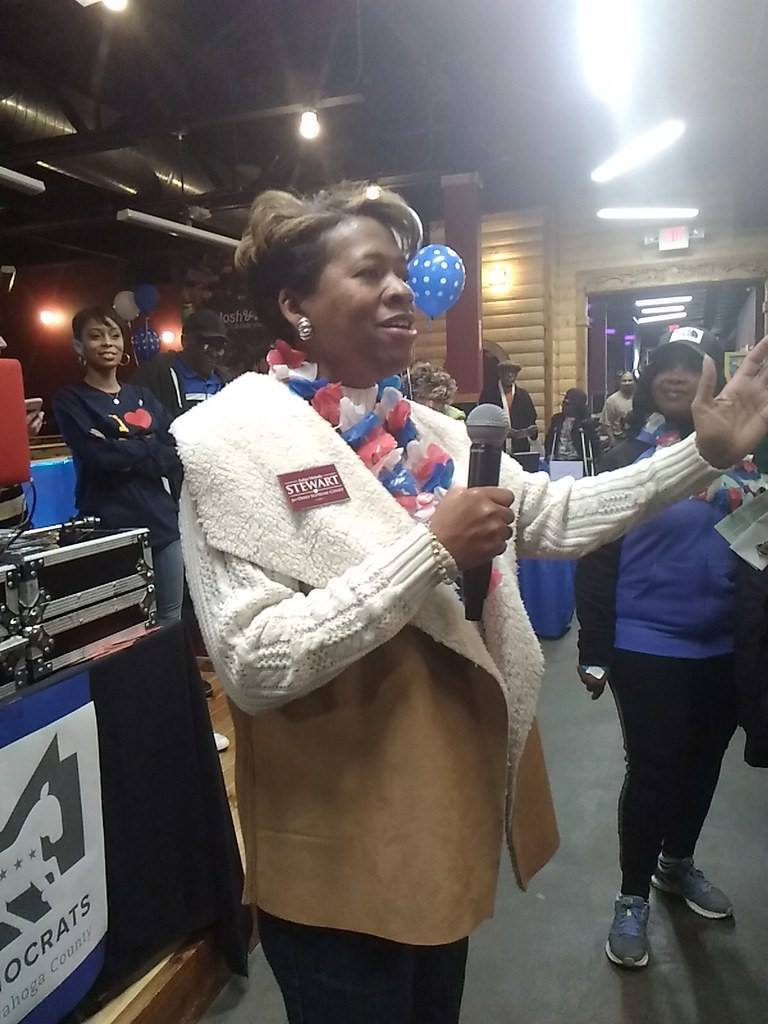
No negativity in this campaign

We're more alike than unalike

2000
OHIO COURT OF APPEALS
8TH DISTRICT
Democratic Primary
Carl G. McMahon – 10.7%
Melody J. Stewart – 31.3%
James J. Sweeney – 58.0%
2002
OHIO COURT OF APPEALS
8TH DISTRICT
Democratic Primary
Thomas J. Pokorny – 51.7%
Melody J. Stewart – 48.3%
2006
OHIO COURT OF APPEALS
8TH DISTRICT
Democratic Primary
Michael A. Dolan – 33.8%
Melody J. Stewart – 40.0%
Pat Talty – 26.2%
General Election
Robert Brian Moriarty – 37.5%
Melody J. Stewart – 62.5%
2010
OHIO COURT OF APPEALS
8TH DISTRICT
Democratic Primary
Melody J. Stewart – 100.0%
General Election
Melody J. Stewart – 100.0%
2016
OHIO COURT OF APPEALS
8TH DISTRICT
Democratic Primary
Melody J. Stewart – 100.0%
General Election
Melody J. Stewart – 100.0%
2018
OHIO SUPREME COURT
Democratic Primary
Melody J. Stewart – 100.0%
General Election
Melody J. Stewart – 52.6%
Mary DeGenaro – 47.4%
In her own voice
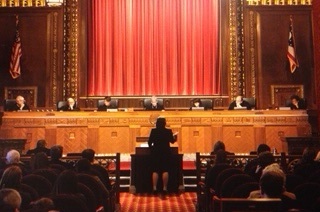
Stewart’s complete interview is archived in the Trailblazing Women in Ohio Politics Oral History Collection at Bowling Green State University’s Center for Archival Collections.
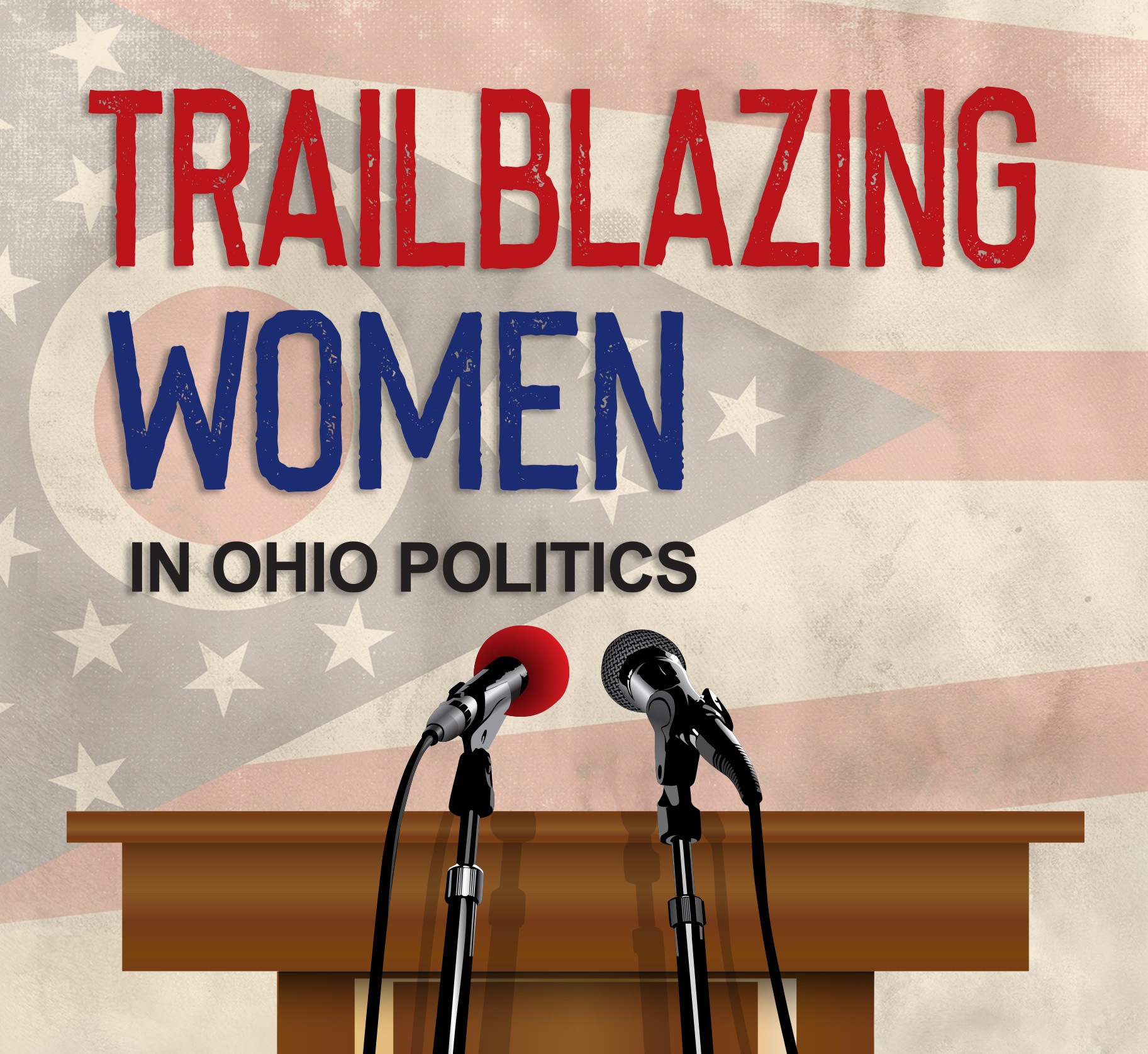
Journaling prompts for 7th through 12th graders
PDF Instructor Guides for high school and college educators also available
Judges in Ohio’s state court system are elected by voters. Melody Stewart ran twice for Ohio’s Eighth District Court of Appeals and lost both times. She nevertheless ran a third time and won in 2006. Are you surprised that she didn’t give up? Why do you think she persisted? Would you have done the same? Why or why not?
After campaigning across the state and winning a seat on the Ohio Supreme Court, Melody Stewart reflected that people across Ohio are “more alike than… unalike.” Describe some things that people from different racial, socioeconomic, and geographic backgrounds share in common. Also describe ways in which they differ. Do the commonalities generally outweigh the differences or vice versa? Explain why.
While running for Ohio Supreme Court in 2018, Melody Stewart reasoned that if she had to attack her opponent to win, she would rather lose. What do you think about negative political campaigning? Under what circumstances is it appropriate or inappropriate? Why do you think so many candidates engage in negative advertising? Should judicial candidates make a special effort to avoid it or not?
Instructor Guide for:
PHOTO CREDITS: Ohio Supreme Court
Updated: 07/06/2023 03:56PM
